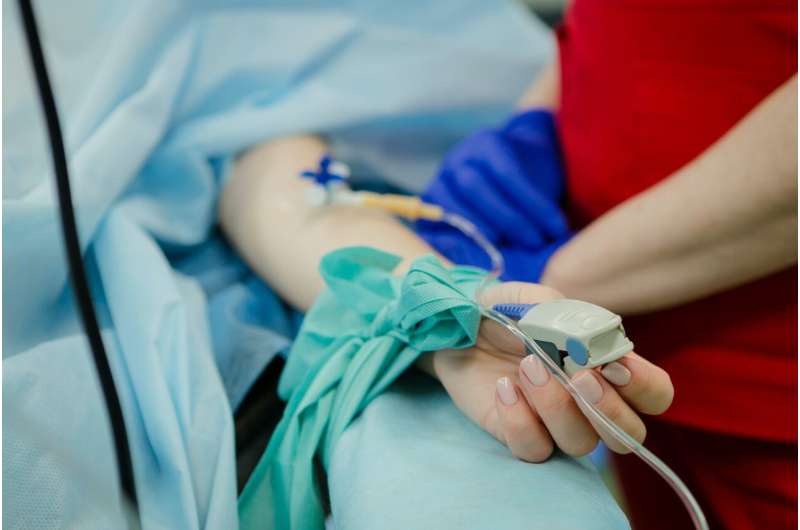
Credit: Unsplash/CC0 Public Domain
Scientists from the St. Petersburg University Laboratory for Mosaic of Autoimmunity conducted a comprehensive examination of women who have undergone silicone breast augmentation. Doctors found a slight increase in the level of autoantibodies against the hormone receptor that controls the function of the thyroid gland.
Breast augmentation silicone is a surgical technique that uses breast implants to increase the size of the mammary glands, change their shape or reconstruct them after loss. Such breast implant prostheses are made from a high molecular weight organosilicon compound – silicone. They are soft sacs filled with either silicone gel or saline solution.
Surgical implantation is often indicated either to improve the aesthetic shape of the breast or to reconstruct the breast after a mastectomy (breast removal) or in cases related to congenital or acquired abnormalities of the mammary glands. Breast augmentation surgery has been quite popular in the world for many years. It has become the most common intervention performed by plastic surgeons. However, healthcare providers are still concerned about their safety or harm to their health.
The scientists from St. Petersburg University led by Yehuda Schoenfeld, Head of the Department of Hospital Surgery at St. Petersburg University, Piotr Yablonsky, Vice Chancellor of Medical Activities of St. Petersburg University and Leonid Churilov, Head of the Department of Pathology at St. Petersburg University , looked at immune system status in 106 women who had undergone breast surgery with or without silicone breast implants.
They analyzed a number of immunological and hormonal parameters. Specifically, they collected blood samples and performed a histological analysis of tissues and cells, as well as a psychological examination of the patients. Checkups were done before surgery, three months, six months and 12 months after surgery. The results are published in the journal Langenbeck’s Archives of Surgery.
“We have identified the phenomenon of increased levels of autoantibodies to the thyroid-stimulating hormone (TSH) receptor (the main regulator of thyroid growth and function). This was only observed in those patients who received silicone implants; the group operated without implants showed no such increase The phenomenon of postoperative increase in prolactin and TSH levels was confirmed.
“It can be said that women with implants develop increased autoimmunity to these receptors,” said Valerii Zolotykh, plastic surgeon, lead author of the study, graduate of the doctoral program of St. Petersburg University. The study was conducted using equipment of the Resource Center for Molecular and Cellular Technologies of the Research Park of St. Petersburg University.
Autoantibodies to TSH receptors can cause thyroid gland disease, also known as Graves’ disease. However, during the first year after mastoplasty, patients barely show clinical and laboratory signs of overt thyroid disease. At the same time, the researchers recommend that patients planning such surgeries undergo a thyroid test and a test for antibodies to it. They consider Graves’ disease and autoimmune thyroiditis to be contraindications to such operations. And after such an operation, patients should monitor the level of autoimmunity in the thyroid gland for six months.
More information:
VG Zolotykh et al, Silicone implants and thyroid autoimmunity, Langenbeck’s Archives of Surgery (2023). DOI: 10.1007/s00423-023-03030-z
Reference: Review of immune system disorders in women with silicone breast implants (2023, October 11) Retrieved February 25, 2024, from
This document is subject to copyright. Except for any fair dealing for purposes of private study or research, no part may be reproduced without written permission. Content is provided for informational purposes only.

